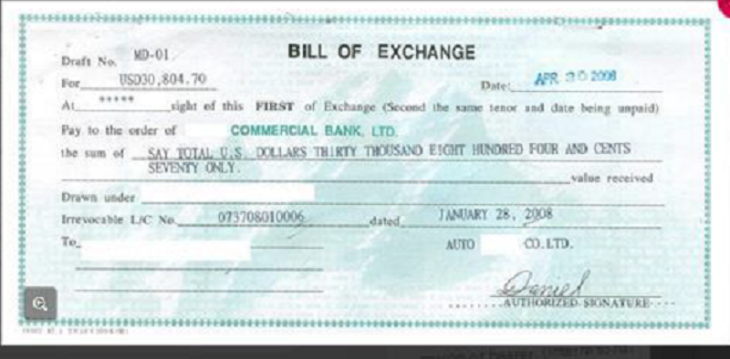Bill of exchange
A bill of exchange is an unconditional order in writing, addressed by one person to another, signed by the person giving it, requiring the person to whom it is addressed, to pay on demand or at a fixed or determined future time, a certain sum in money to, or to the order of, a specified person or to bearer.
Bills of exchange are negotiable instruments which can be used as part of the documentary credit or documentary collection operations to facilitate the payment process.
Banks often refer to a bill of exchange as “paper.” Their quality is based on the creditworthiness of the drawee (the party to whom the instruction to pay is made).
As banks generally honour their financial obligations, sellers can usually feel safer in expecting that payment will be made if their bill of exchange is drawn on a reputable bank rather than directly on their buyer. This is why banks have value as middlemen in an international transaction: they represent additional security of payment.
How do bills of exchange work?
A bill of exchange is issued by the drawer (usually the seller, or the seller’s bank) who registers it as a legal tender (pays its stamp duties), ordering the drawee (usually the buyer, or the buyer’s bank), to pay the beneficiary (or bearer, if endorsed) a certain sum of money on a certain date.
Once it has been accepted by the drawee, the bill of exchange represents proof of the drawee’s indebtedness,independent of the underlying contract/documentary credit. This means that a bill of exchange’s drawee has a legally binding commitment to pay the bill of exchange, irrespective of what happens between the seller and buyer with regards to the underlying sales contract. For example, even if a buyer (if he is a drawee on a bill of exchange) discovers that the goods were not delivered as ordered by the seller, he (as the drawee) is still required by law to pay the bill of exchange on maturity as this promise is independent of the underlying transaction.


